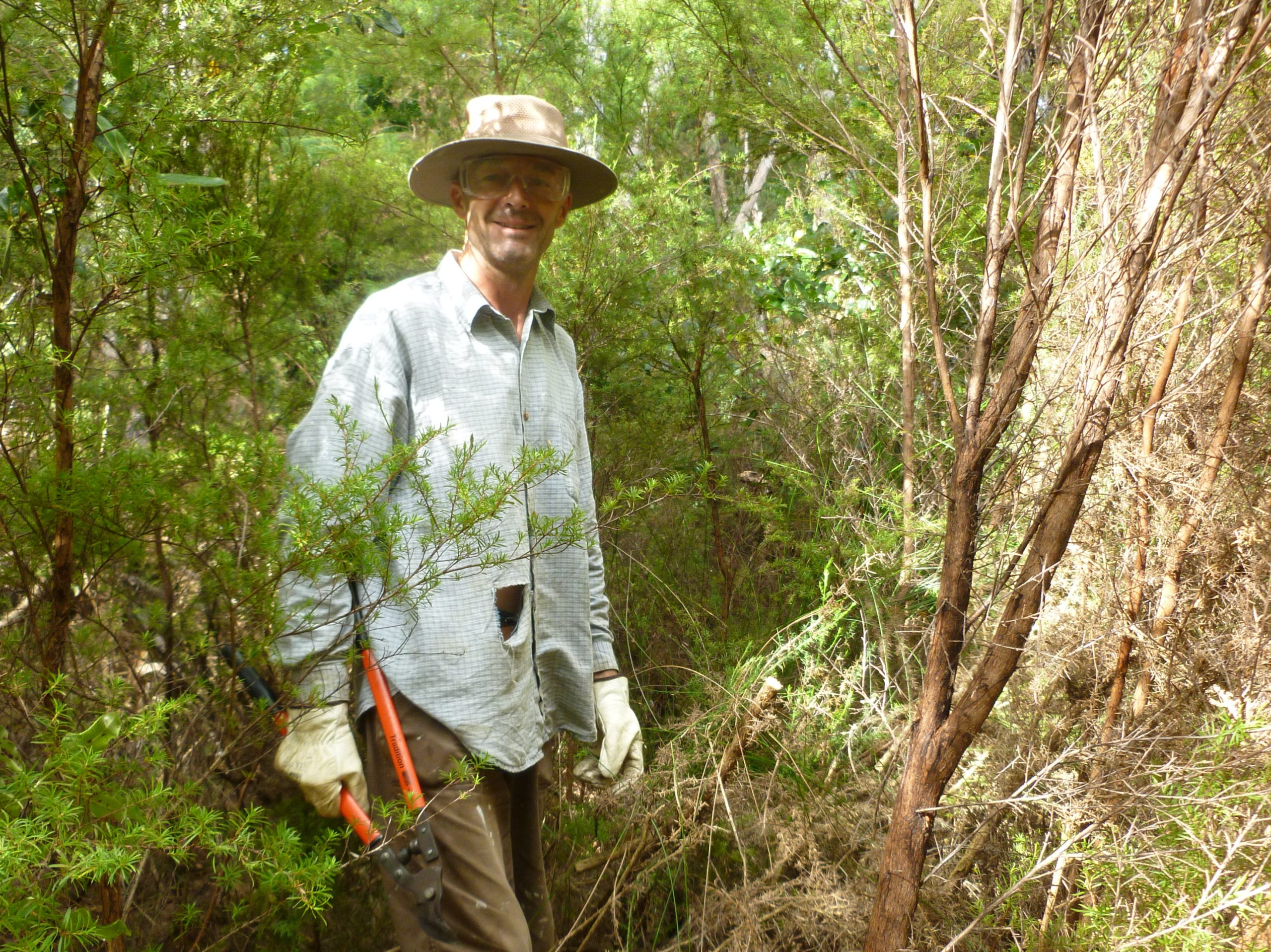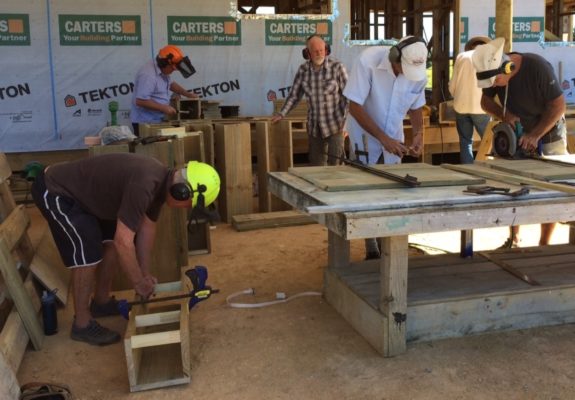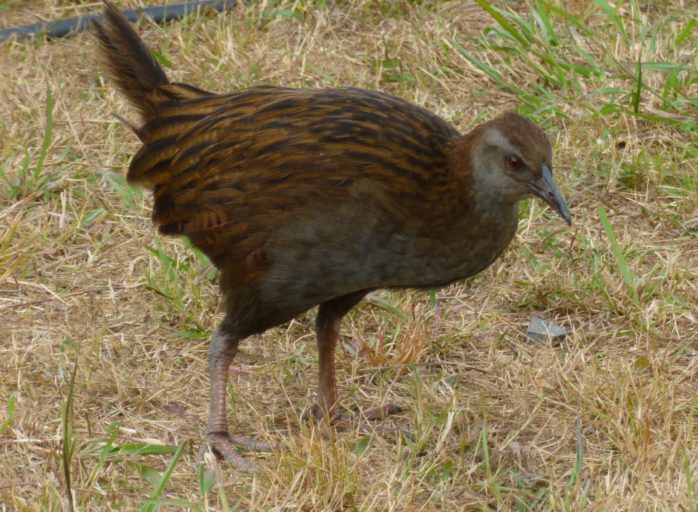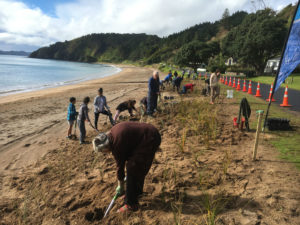Up around the Russell Peninsula, in the Bay of Islands, they have a healthy kiwi population that most parts of New Zealand would envy.

“You’re far more likely to see a kiwi running across the road than a possum,” says Eion Harwood, co-ordinator of Russell Kiwi Protection, a special project set up a couple of years ago by Russell Landcare Trust.
“Most people can hear kiwi from their backyard. We’ve got far more kiwi than possums,” he explains. “There are some kiwi right on the edge of Russell township. They’re not averse to living near humans.”
Kiwi may be relatively plentiful in the area, but the Russell community isn’t taking the iconic birds for granted. Two years ago a group of local conservationists decided to step their kiwi protection up a level.
“Russell Landcare Trust has been looking after kiwi one way or another for about 15 years,” says Eion. “The Kiwi Protection initiative was a way to get things kickstarted again. The Trust created a separate subcommittee to drive funding applications and re-organise pest control.”

According to Eion, there are 2 facets to the Russell Kiwi Protection’s predator control programme: stoat trapping carried out by professional trappers and rat control carried out by volunteers, or, as Eion prefers to call them, the ‘unpaid professionals’.
“I work with landowners and contractors and one of my jobs is to train-up people, helping volunteers to develop new skills. Our main focus is to look ahead at new areas for pest control. As a co-ordinator, there is endless work to be done,” he says. “We’re a small community and it’s not an office job. I’m out in the field every week.”
Russell Kiwi Protection is part of Northland’s Kiwi Coast Project.
“Kiwi Coast has been a real success in Northland,” according to Eion. “It’s based on local communities having a lot of control over what is happening. Being decentralised and community-based, it’s about ‘who knows who’. Landowners are dealing with a local person they know.”
The Russell Peninsula covers an area of around 3000 hectares which is the Kiwi Protection group’s core responsibility. As well as kiwi, there are fernbirds, pateke, matuku, penguins and North Island weka, which were reintroduced to the area 15 years ago. “Weka have done well here,” confirms Eion. “We now have the highest density of North Island weka found anywhere.”
“We’re lucky to have a healthy kiwi population living on the peninsula,” says Eion, “Over 500 birds”. Some areas have high kiwi density and some areas need help. We are doing stoat control over about two thirds of the core area – up to 2000 hectares. Within the next 3 years we plan to have most of the rest of the peninsula covered by stoat trapping.”
“There’s not much publicly-owned land on the Russell peninsula so we rely on the good will and participation of landowners”. “We also have a few big landowners who have their own protection programmes going,” Eion explains. “We feed into what they’re doing so that we maximise coverage.” Many locals also make an individual contributions and donations to keep Russell’s kiwi safe.
The group is in the process of stepping-up their rat control programme. While kiwi are the main focus of their work, entire ecosystems benefit from rat control and they plan to reintroduce North Island robins to parts of the peninsula.
“In the last 6-8 months we’ve started establishing lines and stations for intensive rat control in a priority area that has exceptional biodiversity values,” says Eion. “We’ll have 150 hectares of forest and wetlands protected with intensive rat-control in the next month with 18 kilometres of lines and 800 rat bait stations.”
Another reason for upping rat control is to further reduce stoat numbers.

“Trapping has a huge benefit for decreasing stoat numbers, but you’ve got to have the backup of secondary poisoning (stoats eating poisoned rats). Stoats become trap-shy after a few years. Using one method loses its effectiveness. We’re preparing for that scenario based on the idea that if rat numbers are decreased, that can reduce stoats.”
“There’s some debate over whether to use ground or tree bait stations,” says Eion, “So we’re going with the slightly unique method of using both, because ship rats can climb trees and ground stations target Norway rats.”
The trap-lines have already been half-operational for the last month.
“We killed 800 rats. It was a lot more rats that I would’ve thought,” says Eion. “I had no idea numbers would be so high. We should get a big hit over winter when they’re hungry and in spring that will be a huge benefit to nesting birds as well as seedfall for tree regeneration.”
While stoats and rats are increasingly being controlled by Russell Kiwi Protection, the group is also well aware of another kiwi predator in Northland – one which continues to go largely uncontrolled.
“Dogs are recognised as the main predator of adult kiwi in the Far North based on DOC and Landcare Research data” Eion says. “It’s estimated that at least 300 kiwi are killed every year by dogs in Northland.”
Eion isn’t anti- dog but he knows dogs find kiwi an irresistible attraction.
“I’ve owned dogs myself in the past and see why they are important to us. We do attempt to educate people as to why you can’t mix dogs and kiwi. Of course, many locals understand the importance of not letting their dog wander, even on their own property, and these people also want to protect their dog from the dangers of wandering.”

Unfortunately, not all dog-owners are as responsible.
“We have noticed in our latest kiwi census that we have very high kiwi numbers in about half the Russell Peninsula, but where gaps exist it correlates with places where dogs are known to wander. We will be continuing to deal with this and will make progress,” he says, “but unfortunately, it can be easier for some to turn a blind eye to their neighbour’s dog wandering.”
Enforcement of dog control regulations has also been lacking, Eion believes.
“With regards to enforcement of irresponsible dog owners in the Far North, the District Council has been very slow with dealing with the problem. In the current proposed dog by-law there is no provision to protect kiwi even though numerous people like myself took part in the consultation process and spent hundreds of hours trying to highlight to the Council how they can be a big part of the solution.”
With all the work being done by groups such as the Russell Kiwi Protection volunteers, it is a frustrating situation.
“The current situation means kiwi are not really being protected from dogs” Eion emphasises. “We have a crazy situation where we have millions of dollars being spent and thousands of people getting involved but there is no control on the numbers of dogs people can have in a high kiwi zone, fines are minimal and there is no limit to the number of infringements a dog owner can receive. To many around Russell and around New Zealand, our amazing kiwi absolutely belong here, deserve not to be killed, and belong to us all to treasure. “We are in desperate need of a change in attitude from Far North District Council, so that public efforts to protect kiwi can be effective”.
Kiwi aversion training is one tool, but Eion believes that its effectiveness is limited.
“Kiwi aversion training can be effective for farm and hunting dogs, but it doesn’t work on ‘pets’. I looked into being a trainer a few years ago” says Eion “and was told by DOC that it’s not effective on most pets. It can often make the problem worse because people think it’s a fix for when their dog wanders and will let it wander more often. Kiwi are irresistible, they smell great, they run and the dog forgets that bad experience they may have had a few months or years ago when they did the training. The best advice is don’t let your dog wander and know where they are at all times.”

